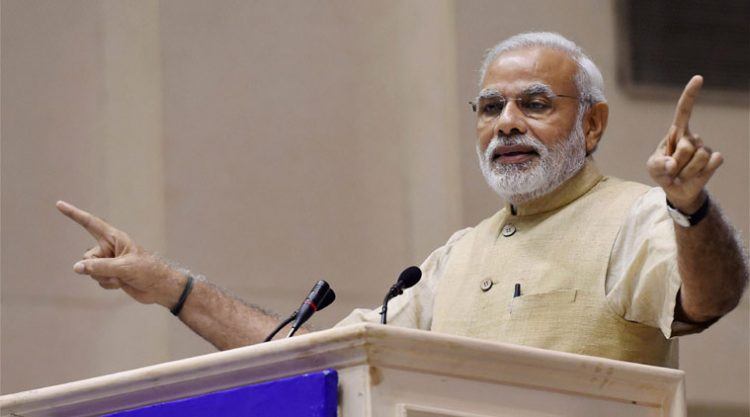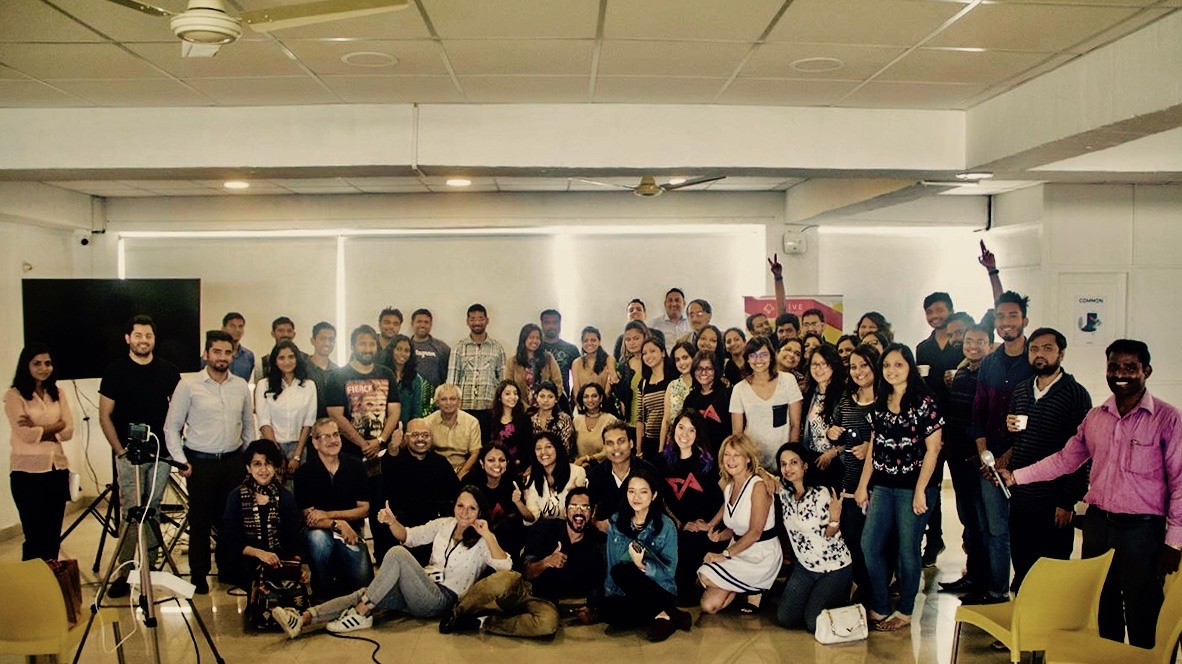Clik here to view.

Photo credit: Himanshu Singh Gurjar/Unsplash.
India is the world’s fastest growing smartphone market, with 462 million internet users, second only to China. The number rose 23 percent last year, and there’s lots more headroom for growth because even now only a third of the 1.3 billion population is connected to the internet.
Nearly 80 percent of India’s internet users access the web with mobile devices, making it a mobile-first market like China, opening up possibilities for new business models and innovation. Digital wallets and other mobile payment avenues, for example, could make India leapfrog over the costlier card-based systems prevalent in developed economies.
Brands cater mainly to the top 50 million families in the country; we’re at the cusp of bringing another 100 million families into the picture.
India’s economic growth rate dropped a fraction below China’s recently, following the Indian government’s bold move for demonetization late last year to digitize the economy. But the International Monetary Fund’s World Economic Outlook expects India to overtake a decelerating China again this year, making it the world’s fastest growing large economy with 7.2 percent growth this year and 7.7 percent in 2018.
Demonetization has given a temporary shock to the economy as cash shortages reduced consumption. But it has, at the same time, given a push to digitization which has the potential for multiplier effects in the long run by bringing more people into the formal economy. This also opens up opportunities for startups to target a broader segment of the market.
“Every brand caters primarily to the top 50 million families in the country; we’re at the cusp of bringing another 100 million families into the picture,” says Sharad Sharma, co-founder of software product industry think tank iSPIRT.
See: Light at the end of the tunnel: here’s the multiplier effect of going cashless
India Stack
Clik here to view.

Indian prime minister Narendra Modi. Photo credit: Hindustan Times.
India’s prime minister has underlined the importance of entrepreneurship and innovation in giving productive outlets to the country’s talent and boosting economic growth. His slogan “Startup India, Standup India” became a rallying point for these initiatives. They include a Startup India program to support entrepreneurs with government schemes, as well as a fund of funds channelized through SIDBI Startup Mitra.
Several state governments in India’s federal structure have also started their own startup missions. These range from established states like Karnataka, whose capital is Bangalore, to emerging startup hubs such as Hyderabad in Telangana, Jaipur in Rajasthan, and Bhubaneswar in Odisha.
See: Here’s how serious Bhubaneswar is about catching up with Bangalore
Most heartening of all is the role of tech evangelists who’re working with the government to lay out a digital infrastructure for the country, which startups can leverage. Its key pillars come together in IndiaStack, a collection of open APIs including authentication for Aadhaar, the biometrics-based ID, a united payments interface (UPI), and other digital enablers like eSign and a digital locker. “India is on the cusp of leapfrogging!” exclaimed Bill Gates on a recent visit to India.
Angels and VCs
Clik here to view.
Venktesh Shukla with Indian Prime Minister Narendra Modi, Google CEO Sundar Pichai, Microsoft CEO Satya Nadella in Silicon Valley. Photo credit: Fenox VC.
Major global VCs and hedge fund from both the West and the East are active in India. These include Tiger Global, Sequoia Capital, Accel Partners, Matrix Partners, Inventus Capital, Nexus Venture Partners, Norwest Venture Partners, Bessemer Venture Partners, CapitalG, IDG Ventures, DST Global, Intel Capital, and Qualcomm Ventures from the West. Japan’s SoftBank and Singapore’s Temasek are among the major investors from the east. Chinese companies Alibaba and Tencent also have been picking up stakes in Indian startups.
Early-stage investors include 500 Startups and Unitus Seed Fund from the West, Rebright Partners and Dream Incubator from Japan, and ZDreams from China.
Indian funds investing in startups include those from Saif Partners, Kalaari Capital, Blume Ventures, Kae Capital, Seedfund, Pi Ventures, India Quotient, and Ventureast.
See: India sends out a strong signal it’s open to tech business – both local and foreign
Angel funding networks have also been coming up in both the established and emerging hubs of the country. Among them are Indian Angel Network, Mumbai Angels, Chennai Angels, Harvard Angels, and Hyderabad Angels. Individual investors like Sharad Sharma of iSPIRT, Infosys co-founders Nandan Nilekani, Mohandas Pai, and Kris Gopalakrishnan, Google’s Rajan Anandan, Ravi Gururaj – the charismatic head of the Nasscom Product Council who recently quit to join TiE Bangalore as its president – Ajeet Khurana of Mumbai, and scores of successful entrepreneurs are also playing a part as angels as well as mentors.
Co-working spaces
Clik here to view.

Team BHive and TIA at SheTalks. Photo credit: BHive.
One of the indicators of a thriving ecosystem is the number and nature of its co-working spaces. For a startup at the earliest stage, the ability to focus on building it up rather than worrying about setting up office is important. Even more important is the networking opportunities and the atmosphere of a co-working space where a young startup can interact with the like-minded.
Co-working spaces are mushrooming in Bangalore, Delhi, Mumbai, Pune, and other big Indian cities. Here are some of the popular ones:
- BHive
- 91Springboard
- Innov8
- CoworkIndia
- The PlayCe
- The Hive
- Bombay Connect
- Geekout
- Bangalore Alpha Club
- BreathingRoom
See: A BHive for startups grows bigger in Bangalore
The Indian ecosystem, like several other startup ecosystems around the world, is undergoing a correction after a flood of venture capital in 2014 and 2015. But the steady rise of early stage funding reinforces investor belief in the long-term potential of the ecosystem.
See: Bangalore’s the 2nd best funded startup hub in the world, outside the US and China
The number of startups funded and funding deals actually went up marginally last year despite a fall in overall funding value, according to data from Nasscom. VCs raised a corpus of US$2 billion for investment in seed or early-stage startups. Student entrepreneurs formed 350 startups last year, a 25 percent rise from 2015. If you go by industry body Assocham’s numbers, India is third in the world – just after the US and the UK – when it comes to the numbers of tech startups.
This post A crash course in India’s startup scene appeared first on Tech in Asia.